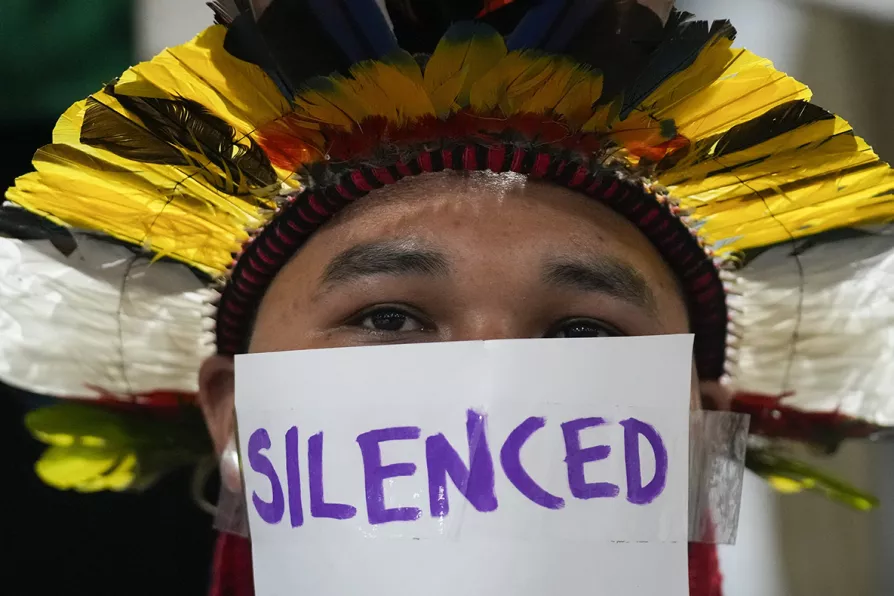
 An activist participates in a demonstration with the word silenced over his mouth at the Cop29 UN Climate Summit, November 16, 2024, in Baku, Azerbaijan
An activist participates in a demonstration with the word silenced over his mouth at the Cop29 UN Climate Summit, November 16, 2024, in Baku, Azerbaijan
THE first week of the United Nations global climate summit in Baku, Azerbaijan, does not appear to have brought nations any closer to a climate justice deal.
The end of the first week was marked on Saturday by a global “day of action” for climate justice around the globe where protesters demonstrated their frustration over the lack of progress towards dealing with the climate emergency.
In week one, there appears to have been little progress made on the issue of how much money rich countries should pay to developed ones to move away from dirty fuels and how to cope with rising seas and temperatures and pay for damage already caused by climate-driven extreme weather.

Reaching co-operation is supposed to be the beginning, not the end, of global climate governance, argues LISA VANHALA













